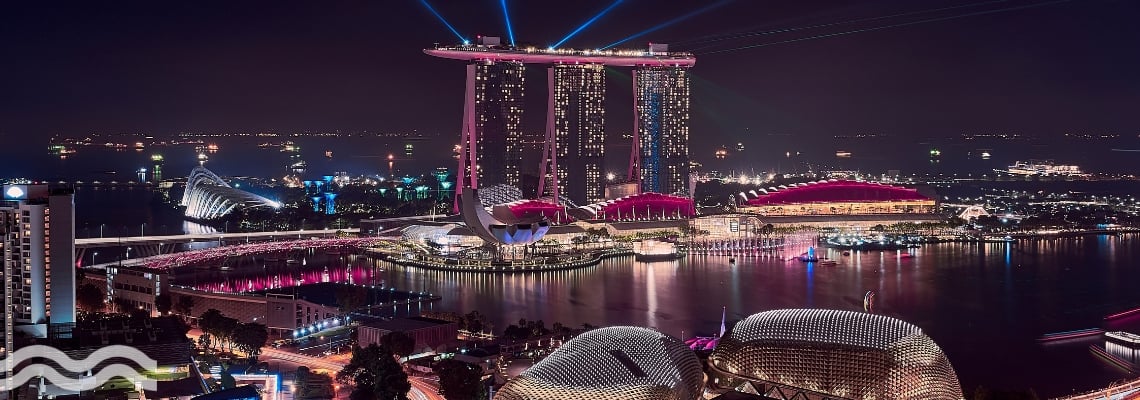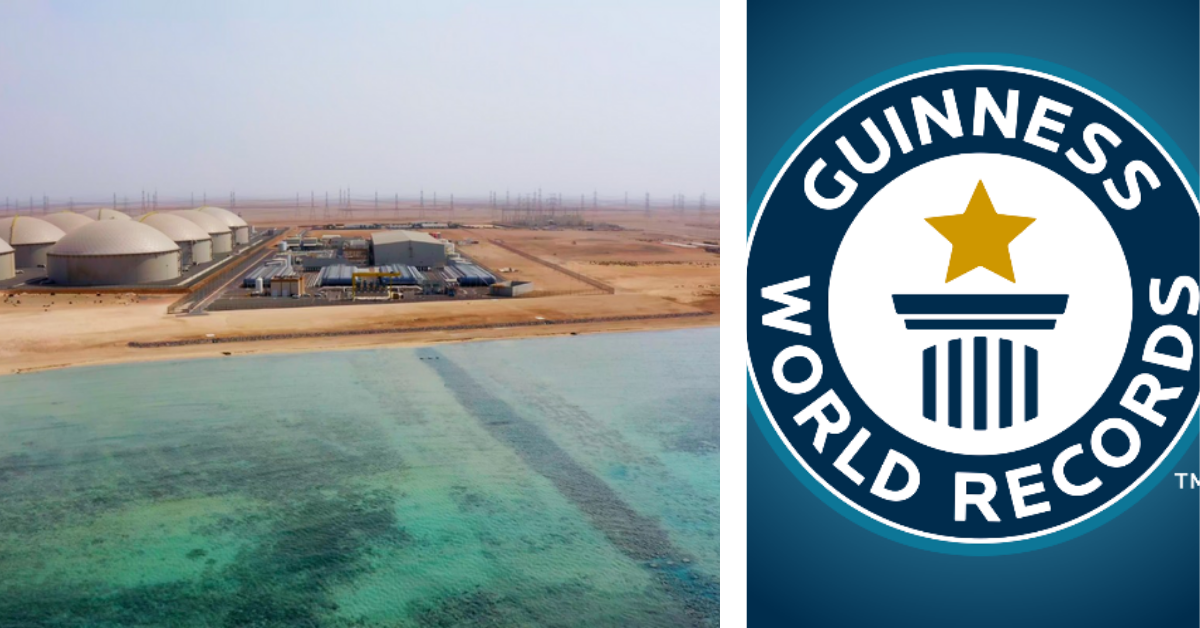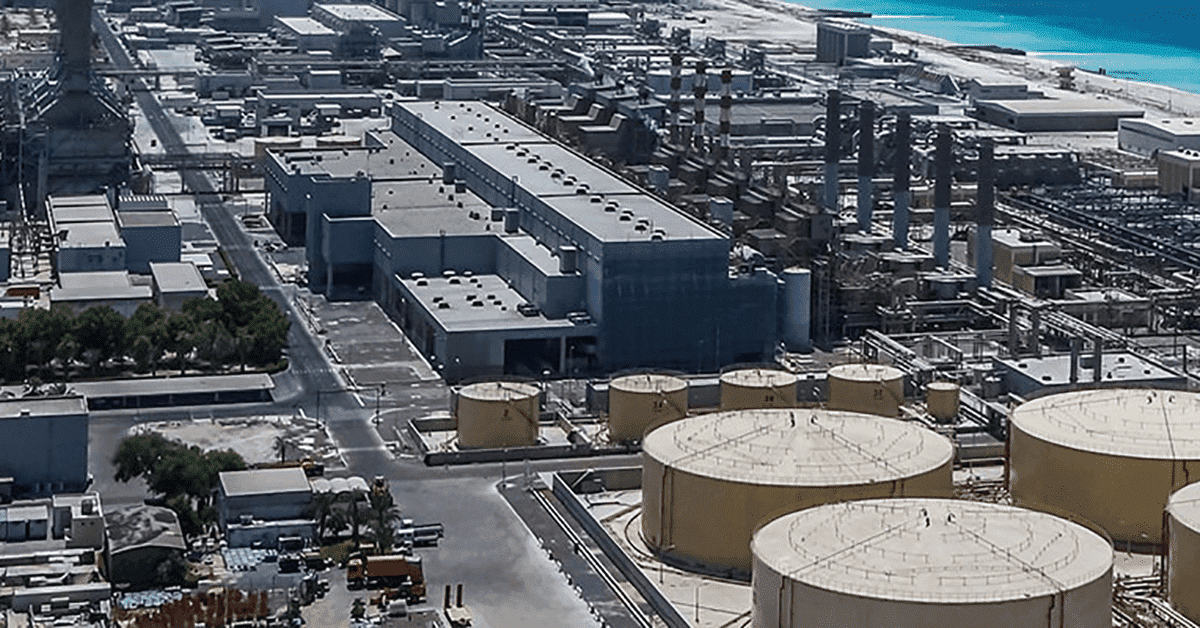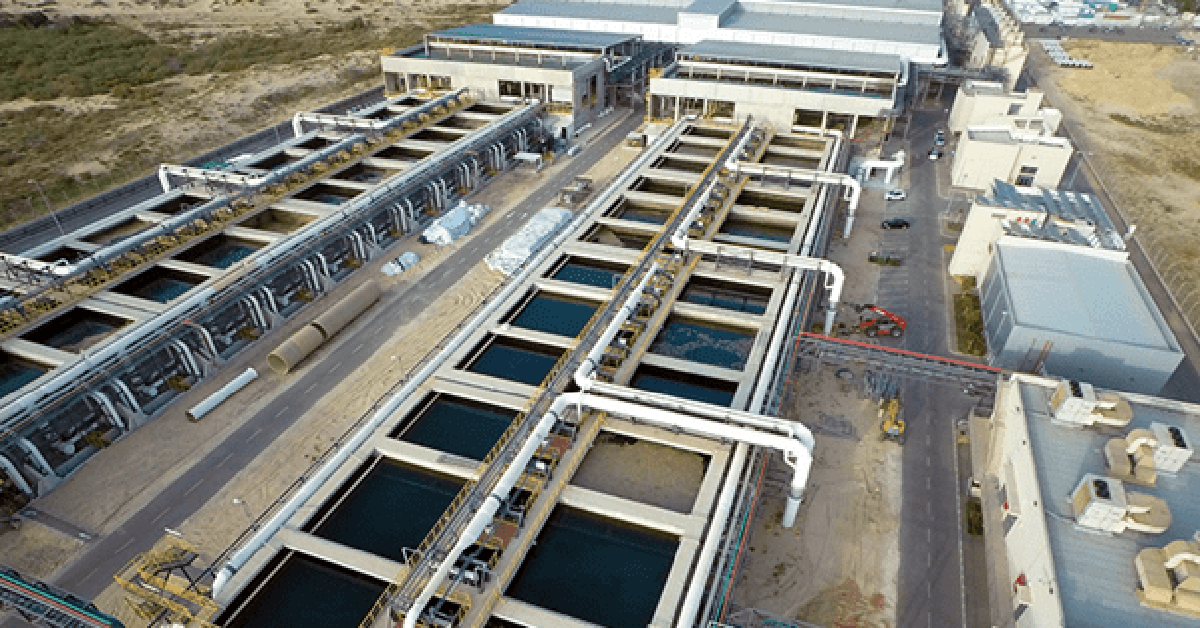AI to drive system-level desalination energy efficiency
Gradiant, a global solutions provider for advanced water and wastewater treatment, has been awarded a two-year, €5.4 million grant from PUB, Singapore's National Water Agency, and the National Research Foundation, to design, build and operate a low-energy desalination process facility.
System-level energy efficiencies
The funding derives from the Living Lab, Centre of Excellence and PUB R&D funding schemes. The facility when built will be implemented and tested at PUB's Desalination Integrated Validation Plant (D-IVP) in Ulu Pandan.
It will also feature SmartOps AI technology that will be used to drive down system-wide energy consumption, plugging the gap that currently exists between individual process units. For example, ceramic membranes for pretreatment, and ultra-permeable membranes for seawater reverse osmosis (SWRO) and brackish water reverse osmosis (BWRO), have all improved energy consumption at their own level, but a gap exists when it comes to integrating energy efficiencies at system level.
Announcing the award, Govind Alagappan, president of Gradiant, told media: "Gradiant is honoured to work with PUB, an innovating pioneer in water and wastewater treatment and management, to address this global challenge."
He added: "Singapore is home of our Global Innovation Center for Water Technologies and the natural location to lead this ground-breaking work in collaboration with PUB. Our AI-powered SmartOps technology will serve as the blueprint for future full-scale desalination in Singapore and beyond."
SmartOps AI
The facility will use Gradiant's SmartOps AI technology to achieve system-level improvements to energy consumption, targeting to achieve a consumption level below 2 kWh/m3, a significant reduction from the current 3.5 kWh/m3 benchmark.
Steven Lam, Gradiant's head of technology, told Aquatech Online: "Gradiant's SmartOps AI technology is improving the economics of water and wastewater treatment."
He added: "By leveraging machine learning, we are able to optimize the entire process from start to finish, not just individual components. This grant enables us to further push the boundaries of energy efficiency, with a system that's intelligent enough to predict and adapt in real-time, driving down energy consumption to unprecedented levels."
SmartOps AI is digital ecosystem for the 'Control, Predict, and Perform' operations of water treatment facilities. It is an integrated platform for plant performance optimization and asset management that uses machine learning AI algorithms to optimize and predict plant operations.
It works by identifying areas that need attention and by proactively predicting the likelihood of future events, such as the need for cleaning or replacement of membranes and equipment. SmartOps AI is already operating at industrial and municipal sites around the world, including the United States, Australia, as well as others in Singapore.
A collaborative solutions approach
The demonstration scale low-energy desalination process facility is expected to be operational by the end of 2025. While Gradiant is leading the development of the facility, it will be partnering with National University of Singapore (NUS), Hydroleap, and collaborating with Separation Technologies Applied Research and Translation (START) on the project.
Share your water technology stories with us
Do you have an innovation, research results or an other interesting topic you would like to share with the international water technology industry? The Aquatech website and social media channels are a great platform to showcase your stories!
Please contact our Sr Brand Marketing Manager Annelie Koomen.
Are you an Aquatech exhibitor?
Make sure you add your latest press releases to your Company Profile in the Exhibitor Portal for free exposure.
We promise never to send you spam and you can unsubscribe at any time!





